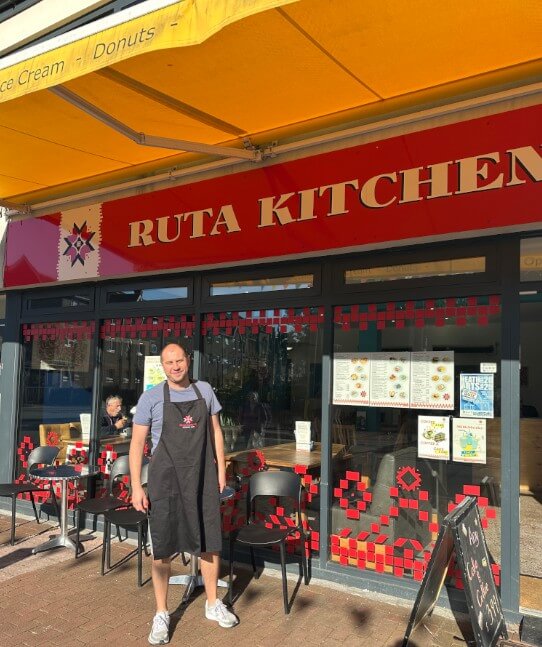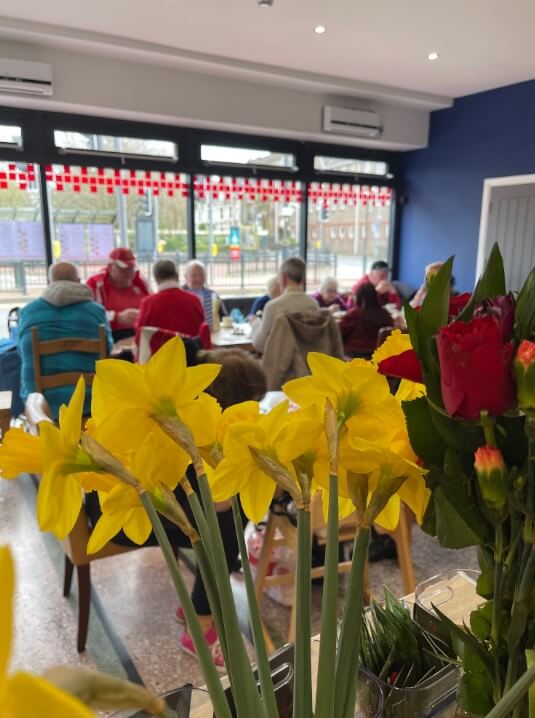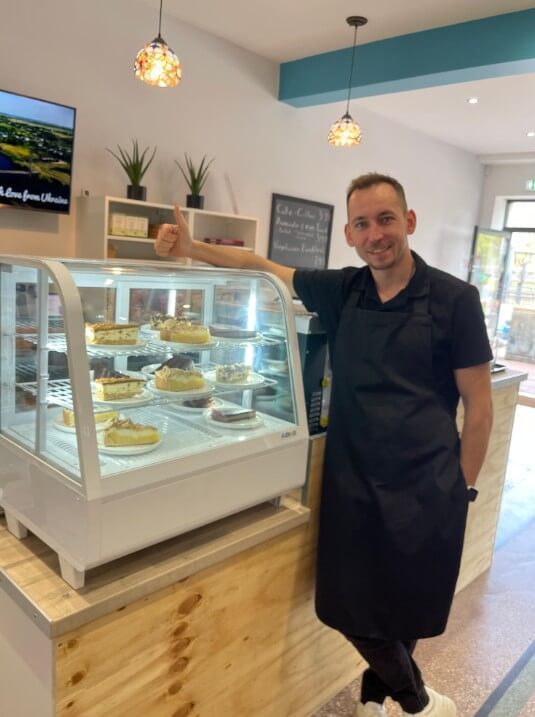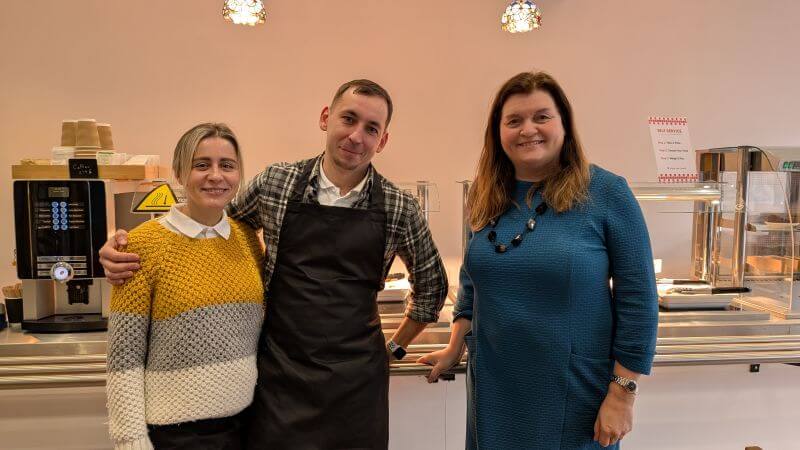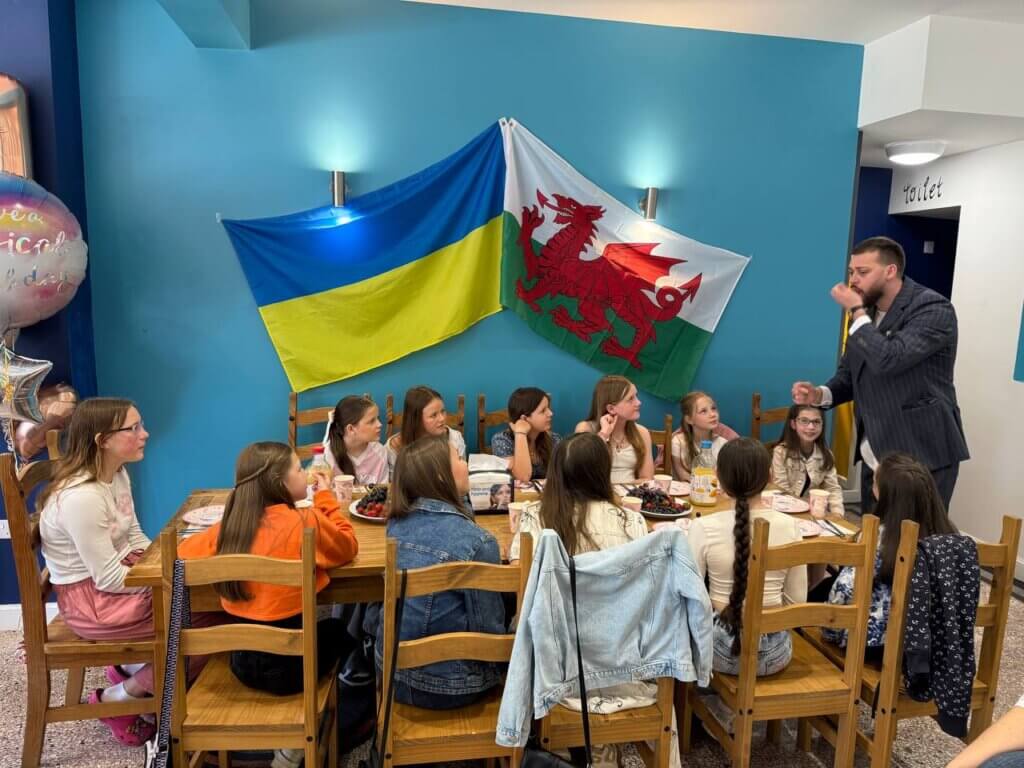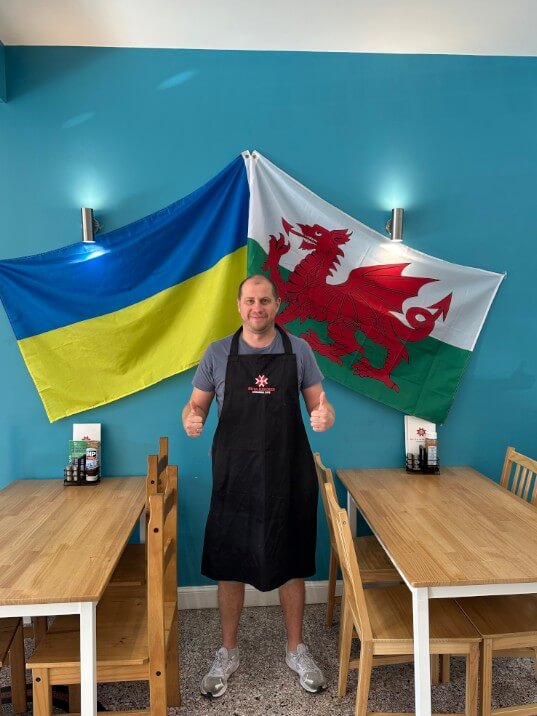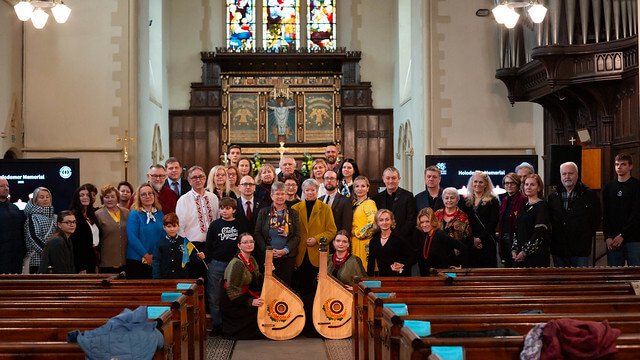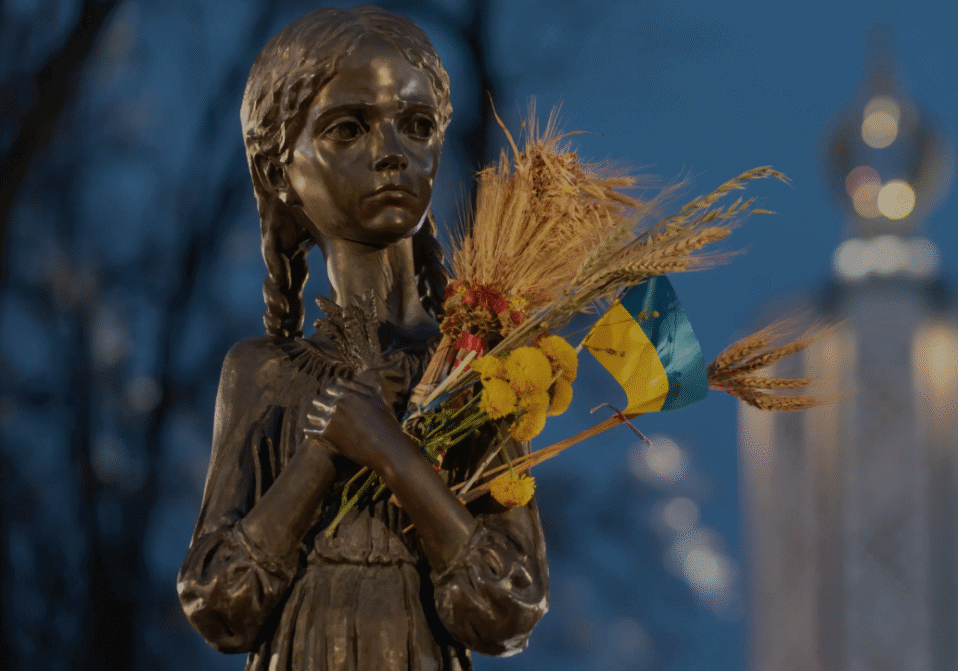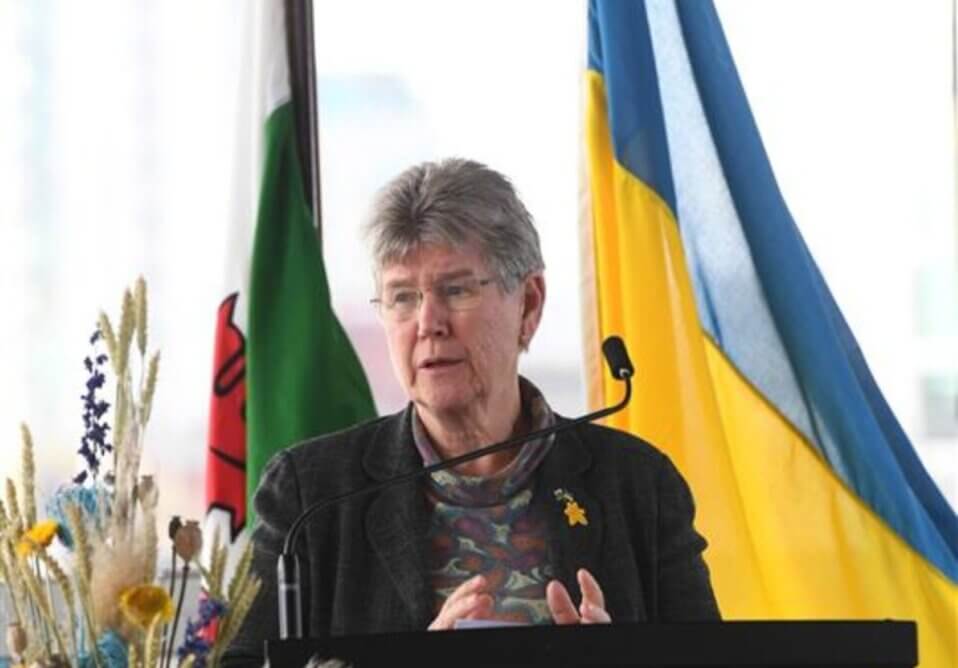In the heart of Neath, Wales, a small Ukrainian café is quietly reshaping how locals discover and experience a culture once unfamiliar to them. Ruta Kitchen, opened by entrepreneurs who arrived in Wales following the full-scale invasion of Ukraine, has grown into much more than a restaurant. It’s a community hub, a cultural bridge, and a daily expression of resilience and hospitality.
The idea of Ruta Kitchen was born long before its founders set foot in Wales. Ihor Tertyshnyi, one of the co-founders alongside Volodymyr Ivliev, shares that the dream of opening a café existed for years. “We always imagined a place where food would be more than just food — it would carry emotion, culture, and memories of home,” he says.
The name “Ruta” holds deep cultural significance. Rue, the herb from which the café takes its name, has long been a symbol of purity, spiritual strength, and love for one’s homeland in Ukrainian tradition. Embroidered into towels, woven into ceremonial wreaths, and passed through generations, it also happens to mean “path” or “road” in several languages — a fitting metaphor for the journey the owners took from Ukraine to Wales.
From the beginning, Ruta Kitchen was envisioned as something more than just a place to eat. The founders dreamed of creating a space that fused taste, tradition, and a sense of home. For Ukrainians, it offers familiarity and comfort. For Welsh locals, it’s a window into another world.
This vision resonated powerfully. The café quickly became a popular meeting place, especially for Ukrainians eager to introduce British friends, sponsors, and neighbors to their culture through food. Many regulars travel from nearby towns including Port Talbot, Swansea, Newport, and even Cardiff to visit. The Neath Council recognized Ruta’s role by selecting it as the venue for weekly meetings with the local Ukrainian community — a gesture that underscores the café’s place at the heart of community life.
Achieving this wasn’t without trial and error. One of the earliest challenges was finding a balance between authenticity and local expectations. The team initially introduced a “pay-by-weight” concept common in Ukraine, hoping it would offer speed and flexibility. But the model confused British customers. After a few weeks, the café transitioned to individual made-to-order dishes.
Ruta Kitchen’s menu tells a story. It features Ukrainian staples from across the regions: borscht, varenyky (dumplings), deruny (potato pancakes), holubtsi (stuffed cabbage rolls), zrazy, and Crimean chebureki. But it also blends in global and local elements, such as the full English breakfast and European lunch options. The team enjoys experimenting — green spinach varenyky with cheese, or fish dumplings in black dough are examples of how tradition meets creativity on their plates.
Some of their biggest hits have come as surprises. Varenyky with cherries, once a nostalgic request by Ukrainian customers, have become beloved by locals. Borscht, meanwhile, has earned universal praise, with new visitors often arriving on the recommendations of friends eager to try “real Ukrainian borscht.”
Holubtsi, understated in appearance but rich in flavor, have also proven popular. Pelmeni — small meat dumplings, sometimes fried or served in broth — became a breakout star, perhaps because they resemble familiar Asian-style dumplings, but carry a distinct homemade warmth.
Yet food is just one part of Ruta Kitchen’s appeal. The café has built a reputation for community and care. Loyalty programs such as “every tenth coffee or breakfast free” encourage return visits. Children’s meals are priced symbolically to ensure accessibility for families. Holiday seasons bring small gifts and heartfelt gestures — a quiet way to thank customers for their continued support.
Recognition followed. Sioned Williams, Member of the Senedd for Plaid Cymru, stopped by the café and praised the initiative as an example of cultural preservation and integration. “Ruta Kitchen is a Ukrainian café and has just opened on Orchard Street, opposite the bus station and around the corner from my office. I popped in yesterday and met Anton and Olena,” she shared, referring to two of the team at Ruta Kitchen.
That kind of endorsement underscores the impact Ruta Kitchen is having: not only serving food, but creating a space for cultural exchange, understanding, and belonging. As Ihor puts it, “We don’t see these challenges as obstacles. They’re stages of development. Every day we learn, adapt, and grow. And when people come back, bring friends, and say they feel at home here — that’s the greatest reward.”
Opening a business in a new country has brought its own hurdles. From understanding regulations and licenses to ensuring the highest food hygiene standards, the learning curve has been steep. But their commitment has paid off: Ruta Kitchen recently received the top rating of 5 out of 5 for food hygiene.
Now fully embedded in the local landscape, the team is looking ahead. New dishes, seasonal offerings, themed nights, culinary masterclasses — all are on the horizon. And with growing interest in Ukrainian cuisine, they are also considering new locations across Wales.
“This is just the beginning for us,” Ihor says. “We want Ruta Kitchen to be a place that unites people, that inspires, supports, and introduces Ukraine through taste, warmth, and community.”
In a time when many Ukrainians have been forced to rebuild their lives abroad, Ruta Kitchen stands as proof that passion, adaptability, and a clear cultural vision can transform challenge into opportunity.
Find Ruta Kitchen: 34 Orchard Street, Neath, SA11 1HA
Phone: 01792 316740
Email: rutakitchen@gmail.com
Order online: just-eat.co.uk
By Viktor Moroz for Ukrainians.Wales

